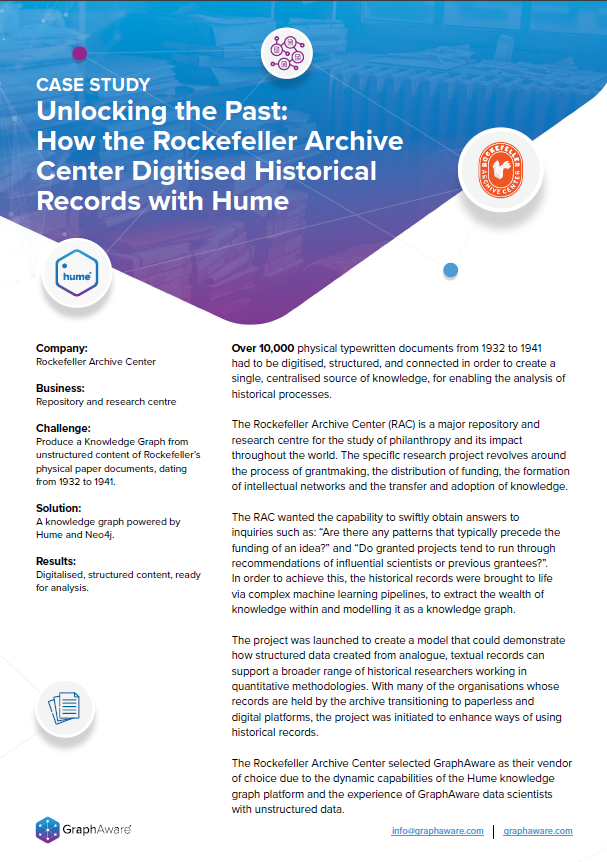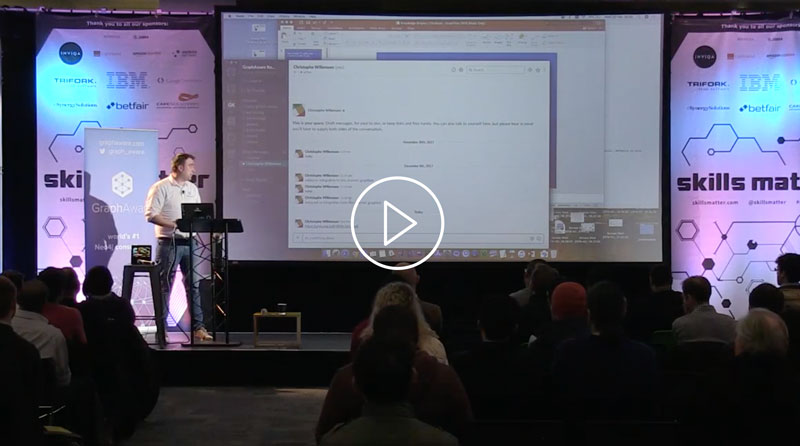New Case Study
How the Rockefeller Archive Center Digitised Historical Records with Hume
Over 10,000 physical typewritten documents from 1932 to 1941 had to be digitised, structured, and connected in order to create a single, centralised source of knowledge, for enabling the analysis of historical processes.

